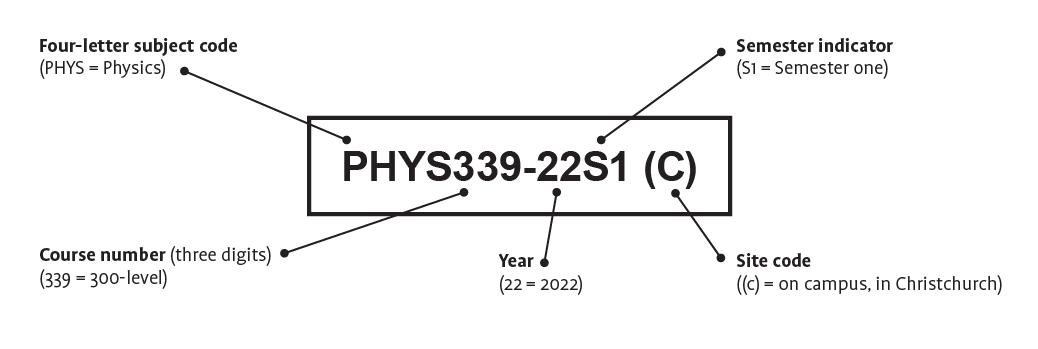Each course has a point value and you will be eligible to graduate in your chosen qualification when you have reached the required number of points.
Each course is identified by a unique course code made up of a four-letter abbreviation for the subject and a number (the first digit of which indicates the level of the course, eg: ECON104.)
Students usually take 100-level courses in their first year, 200 level in their 2nd year and 300 level in their 3rd year.

